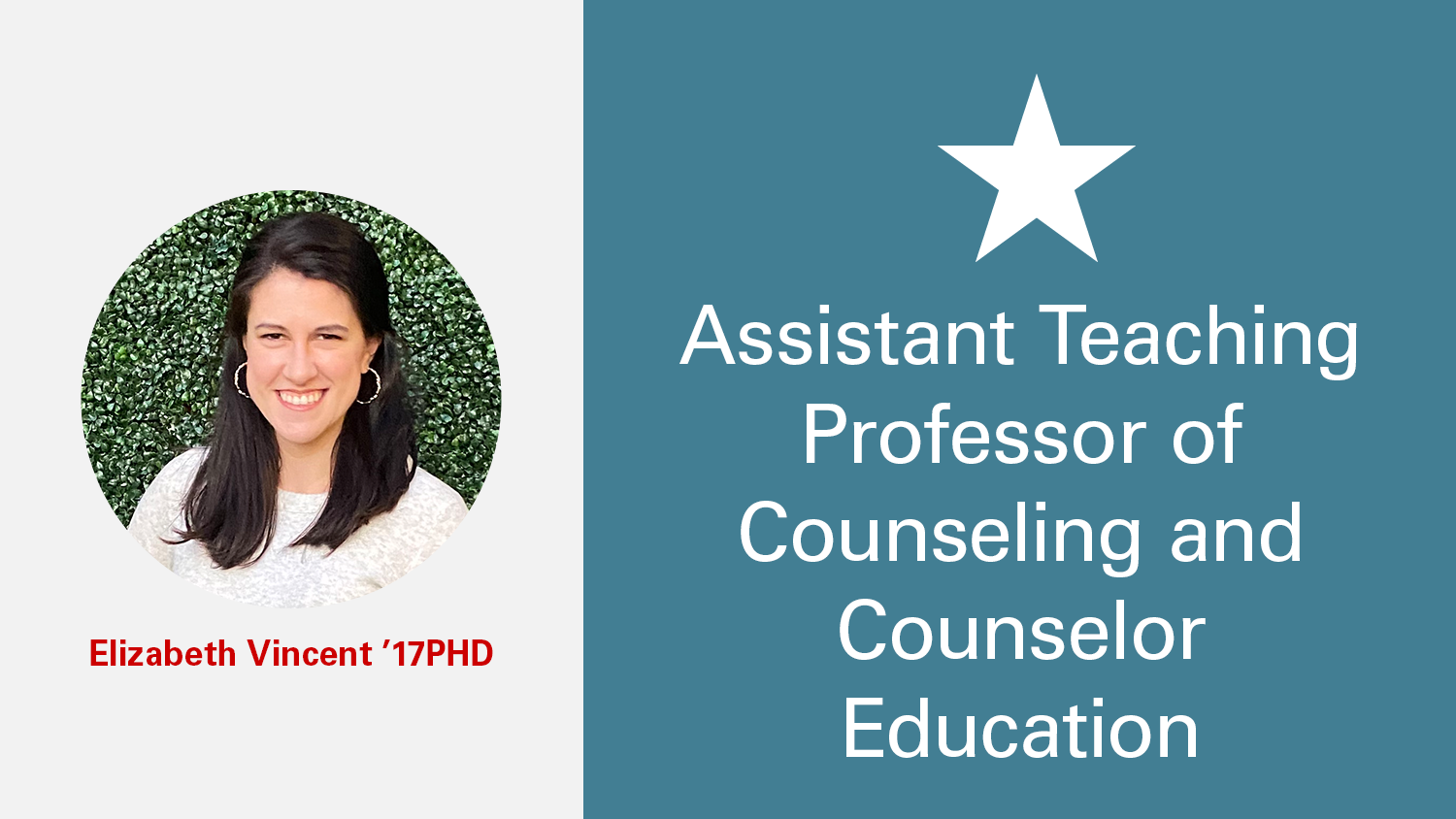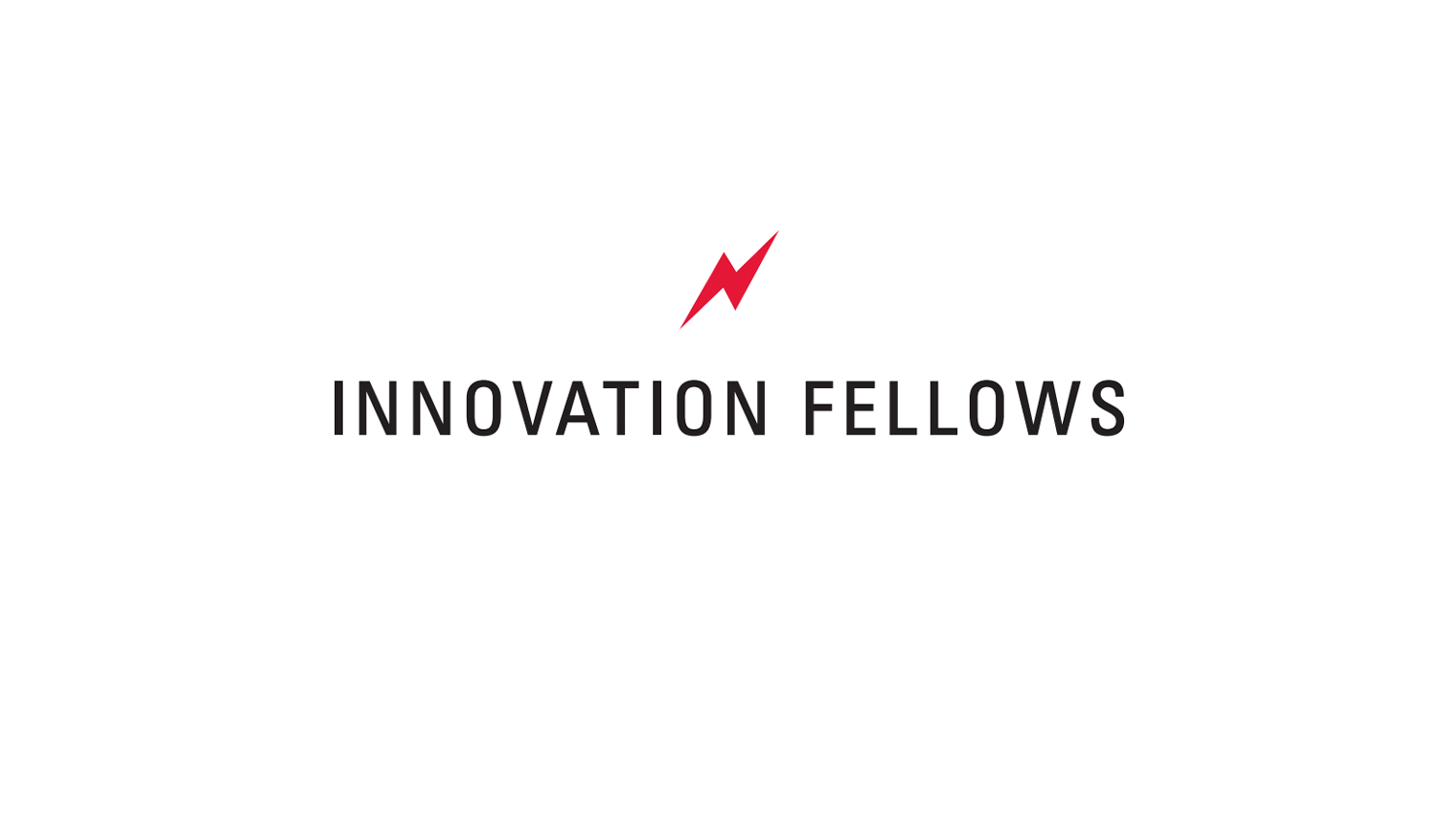Meet Assistant Teaching Professor Elizabeth Vincent ’17PHD: ‘I View my Classroom as a Collaborative Learning Environment Where Every Person is Both a Learner and a Teacher’

This is part of a series of profiles about new faculty who have joined the College of Education in the 2021-22 academic year.
Name: Elizabeth Vincent, Ph.D.
Title: Assistant Teaching Professor of Counseling and Counselor Education
Education: Ph.D. in Counseling and Counselor Education from NC State University, M.S. in Counselor Education from East Carolina University, B.A. in Psychology from the University of Virginia.
Experience: Assistant Professor and Field Experiences Coordinator, Campbell University; Licensed Counselor, Creasman Counseling; Career Counselor, NC State University
Why did you choose a career in education?
Early in my own education experience, school counselors played a significant role in helping address my unique learning needs within the classroom. Because of my own learning challenges, I had a negative view of learning. Through targeted individual support, I was able to learn strategies to be successful in the classroom and enjoy the learning process. This experience shifted my entire perspective on education and motivated me to continue to find new and different ways to learn both within and beyond the classroom. After living this experience, I wanted to pass along the support I was given by pursuing a career in education.
Why did you decide to pursue a doctoral degree?
After enrolling in my master’s degree program, I had a passion for the counseling field but had trouble narrowing down a specialty area. I loved working with people in a counseling capacity and was energized by walking with others as they achieved their goals. However, I found myself searching for impact on a larger scale. I had two strong mentors in my master’s degree program who exposed me to diverse ways to use my counseling skills and to contribute to the counseling profession through research and teaching. My mentors encouraged me to gain teaching experience through acting as an instructor for a first-year college students’ seminar course. After having my first taste of the classroom, I knew I wanted to pursue a future job where I could teach. I viewed a doctoral degree as a pathway to have a larger impact on helping others as well as the future of the counseling profession.
What are your research interests?
My primary research interests are about innovation and technology in counseling practice and counselor education.
What sparked your interest in those topics?
I stumbled into this interest through my work as a counseling practitioner. I was working as a career counselor in a college setting and kept noticing a disconnect between traditional approaches to helping and the technology used in other fields. My college student clients would bring different technology into sessions to illustrate their experiences outside of session or highlight how they were solving a problem. This made me wonder how we could be innovative and use technology to enhance counseling practice.
As I progressed in my Ph.D. program, I also shifted my interest in technology into teaching and how to teach students to use technology to learn and to counsel. What I discovered is that interest in technology was reflective of a larger interest in innovation. This drove my current research into exploring the lived experience of innovative counselor educators. In addition, the recent widespread use of telehealth in the counseling field has allowed practitioners to be innovative in how they serve clients. I am excited to learn more about how counselors are being innovative in the telehealth environment.
What is one research project or moment in your academic career that you are particularly proud of?
In March 2020, the world changed, as did the counseling profession. At that time, I was supervising a group of students who were only a few months into counseling practice before the COVID-19 pandemic forced all practitioners to shift their practice to a virtual format. While this was stressful for seasoned practitioners, it was especially challenging for students who were just beginning to learn how to support clients while also learning how to navigate the technological challenges of telehealth. I am proud of having had the opportunity to support these students as they adjusted quickly in a crisis to provide continuity of care to their clients. I appreciated being able to act as a resource and a support for these students and was inspired by their perseverance. Each student was able to successfully complete their training requirements while serving the public and I will always be grateful that I was part of their success.
What is your teaching philosophy?
Constructivism drives my teaching practice. I enjoy creating an environment where students can apply what we are learning to practice-based opportunities. I view my classroom as a collaborative learning environment where every person is both a learner and a teacher; similarly to counseling practice, where it is important to listen to what our clients have to teach us. My hope is for all students to also view their peers as teachers, and to identify the ways they can contribute to the education of others. Counseling is also a social process. With that in mind, I try to foster relationship building to ensure students understand how to have difficult conversations and approach challenging subjects with compassion, humility and curiosity.
What do you hope your students learn from you?
I hope my students learn how to be innovative in their work as counselors. We teach students that each client is unique through their own lived experience, identity and worldview. I want to teach students to take the same unique approach to helping clients grow and meet their goals. This means to look at problems through different viewpoints, to be comfortable taking risks, and to challenge the traditional way of helping others to provide the best level of care to each individual. Through trying new things, we also make mistakes. I also hope my students become comfortable with making mistakes and learning how to be humble in their professional journey.
What makes someone an “extraordinary educator?”
I think an extraordinary educator is someone who can bring their subject to life in the classroom. Someone who has energy and passion for their subject and can ignite the same passion within their students. An extraordinary educator is someone who understands that learning is a lifelong process. Through continuing their own learning, they are able to update and change not only what they are teaching, but how they are teaching others. Lastly, I think an extraordinary educator is someone who authentically cares for their students both as people and as learners.
- Categories:


